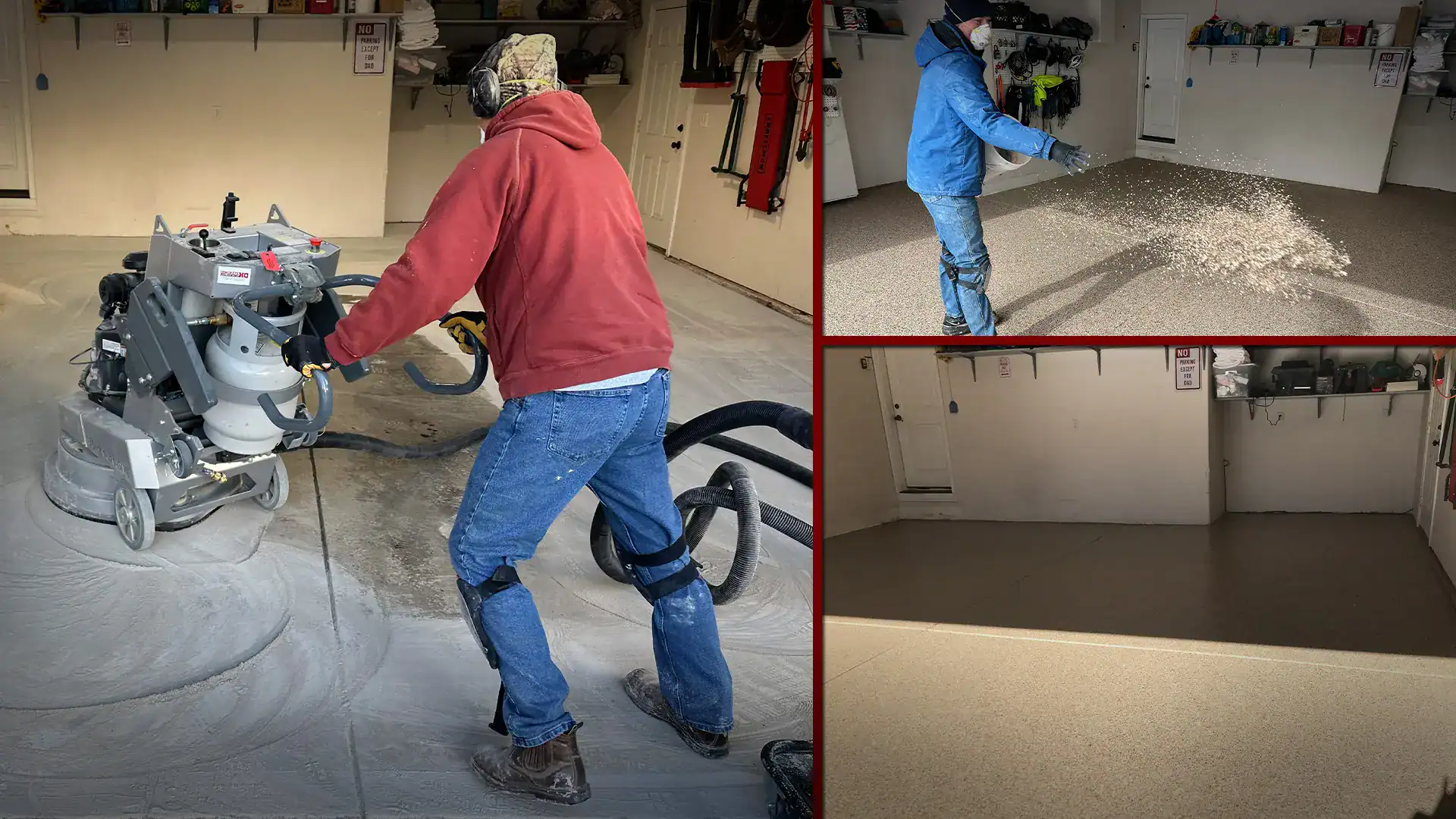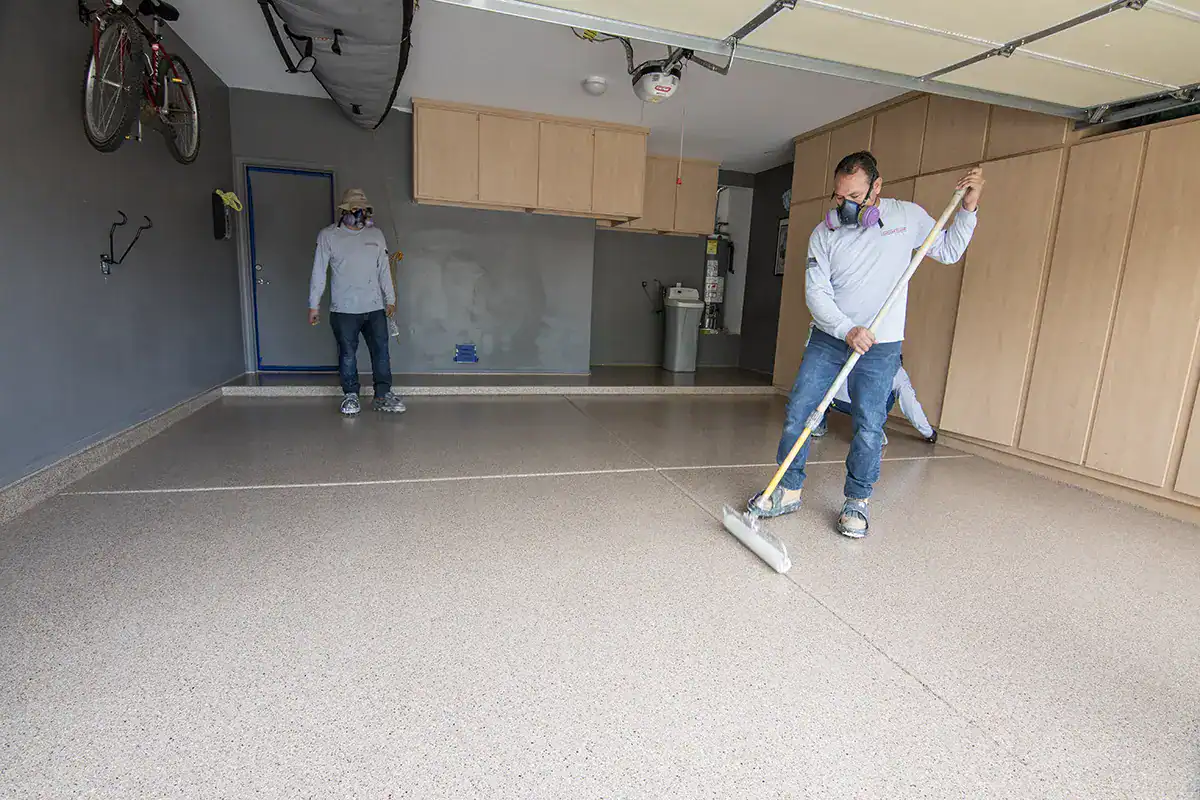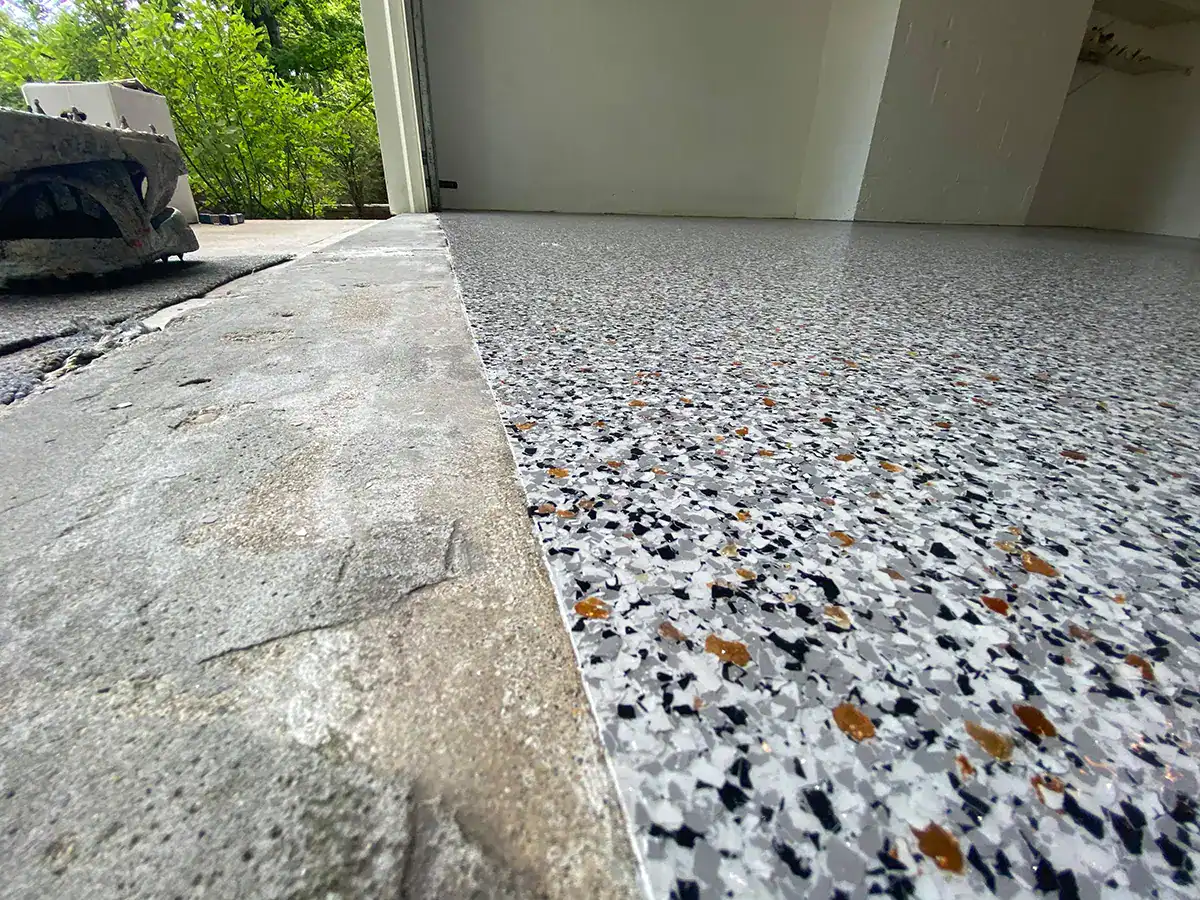When it comes to installing a professional garage floor coating, the process doesn’t start with the coating itself, it starts with the concrete underneath. No matter how durable or high-quality the product may be, if the floor isn’t prepared correctly, the coating won’t last.
Proper concrete preparation ensures that the coating bonds tightly to the surface and resists peeling, cracking, or premature wear.
Understanding Surface Texture
Before we get into how we prep the concrete, it’s good to know why. The key factor in preparation is what’s known as the Concrete Surface Profile (CSP). This measures how rough or textured a concrete surface is, with a scale that ranges from 1 (super smooth) to 10 (super rough). A smooth floor may look clean, but that doesn’t mean it’ll hold a coating well. On the other hand, a surface that’s been over-prepared can be unnecessarily rough, which isn’t needed in most garages.
The “sweet spot” is right in the middle, usually a CSP of 3–4. This texture allows the garage floor coating to form a secure bond while keeping the floor surface even and professional-looking.
How Contractors Achieve the Right CSP
There are several ways to roughen concrete, but not all methods are created equal. Acid etching and low-pressure water jetting leave the floor too smooth, making coatings prone to peeling. Aggressive methods like sandblasting or rotomilling, while effective, create more texture than necessary for a garage environment.
Professional contractors rely on grinders, which can deliver the optimal CSP. Propane-powered grinders, in particular, provide power, speed, and mobility without the hassle of cords or the delays of smaller electric units. This means faster prep, consistent results, and ultimately a longer-lasting garage floor coating.
Propane Grinder Safety
“Propane grinder” sounds a lot more intense than it is. It’s actually particularly safe, especially for commercial flooring areas. Grinding around a bunch of extension cords is not a safe practice, and these spaces tend to get wet or damp too. Also, the propane in propane grinders is not all that flammable (it’s nothing like the gas in your vehicle). Because its emissions are near-zero, these grinders are even safe to use in small spaces indoors.
Why DIY Falls Short
Most of what we just said is probably never going to be mentioned on the back of a DIY kit. The equipment needed to prepare concrete properly is expensive and specialized, which is exactly why DIY kits fail left and right. Even if the coating itself is high quality, skipping professional prep can lead to frustration down the line.
Choose the Right Contractor
If you’re choosing a contractor for your garage floor coating, make sure they emphasize proper concrete preparation. Ask about their equipment and process. If grinders—especially propane grinders—aren’t part of the plan, the job may not hold up the way it should.
Floor prep for a concrete coating is the hidden step that makes all the difference.
About the Author
Share this Post




